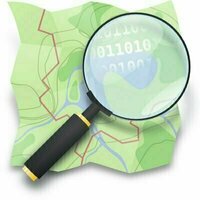This is a pretty loaded question that can really depend on a number of other various factors. Before jumping into what stack to use, you need to determine and figure out a few more things.
- What is your timeline?
- How many people are on you're team and what's their current knowledge on certain languages/frameworks you're investigating (need to account for a potential ramp up period)
- On the mobile side, do you want to maintain one codebase for ios/android? Or do you want to write separate implementations for both OS'?
- What's the architecture look like? Are you shooting for an all-in-one monolith or separating out the business logic into smaller services?
- Are you taking orders? If you are, are you planning on taking them and processing them on-demand? As in if you have 1-n number of orders coming in, are you going do all the business logic that sends that order to a restaurant, store, etc on one request? Or do you plan on queuing them async?
- Do you plan on sending SMS, Email, Push notifications, etc? How are you planning on sending one or more of them for a single order, while maintaining an acceptable latency per request?
- How to do you plan on processing events? As in: Order is place, order is ready, order is picked up, order is in route, order is delivered.
I could go over many other what-ifs here. Without much more detail here. I would say some of your first steps are in the realm of determining:
What does success look like with this app? As in, what features need to made, what are nice-to-haves, etc. (this will help guide you in the next part)
What does the architecture look like here? How is data going flow, does a monolith or service-oriented design make sense?
The previous point will lead you down the road of determining what other supporting software you will need such as: A queuing service (SQS, Redis, etc.), async messaging (Kafka, Kinesis, etc.).
Does this app require heavier computations that will require threading, etc.
What's the delivery time on this? Do you need a higher level language that provides a lot of abstractions or a framework that doesn't require you to write a lot of things from scratch (this comes with tradeoffs though)?
On the mobile/ web app side, do you need need the mobile app to do interact with the hardware a lot? Or can you get away with react native and write kotlin/java or switch where/if needed? Do you want to write completely separate business logic for both mobile and web, or would using React Web/Native make sense where you can reuse a lot of the business logic.
I know I didn't directly answer your question, but there are many things to consider here. Try answering the above questions, make a plan, determine trade-offs, and evaluate your team's knowledge. This will enable you to start breaking down your questions into more digestible parts.






















